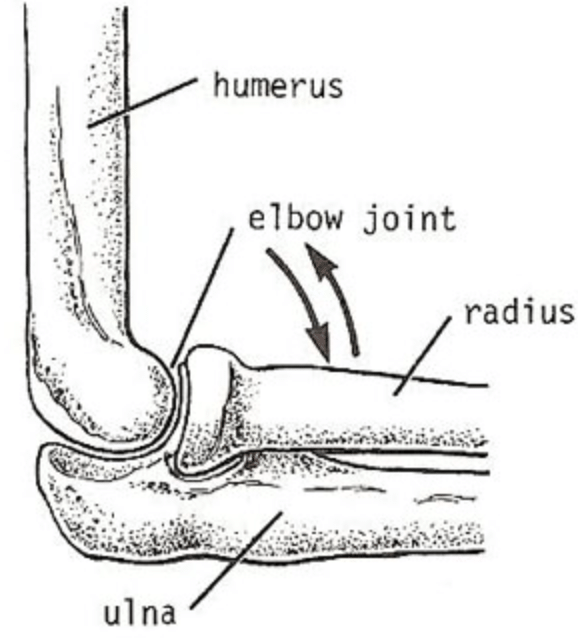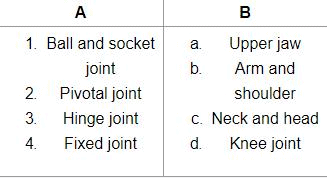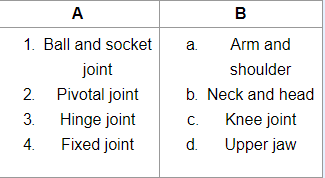Class 6 Science Chapter 5 Question Answers - Body Movement
Short Answer Type Questions
Q1: Why are we not able to move our upper jaw?
Ans: We not able to move our upper jaw because the joint between our upper jaw and rest of the head is a fixed joint.
Q2: What is a hinge joint?
Ans: The joint that allows only back and forth movement is hinge joint. Example-joint at our elbow.

Q3:What is rib cage?
Ans: Ribs join the chest bone and back bone together to form box called rib cage.
Q4: How can earthworm move?
Ans: Earthworm can move by muscle expansions and contraction. Its body secrete a slimy substance to help in movement.
Q5: Why birds can fly?
Ans: Birds can fly because their body is well suited for flying. Their bones are hollow and light. Also the bony parts of forelimbs are modified as wings.
Q6: What kind of body fishes has, which helps them to swim?
Ans: Fishes have streamlined body which helps them to swim. Fins of the tail also help fish to swim.
Q7: How does earthworm gets grip on ground?
Ans: Under its body, earthworm has a large number of tiny bristles projecting out. The bristles are connected with the muscles and they help to get a good grip on the ground.
Q8: Why snake move fast but not in straight line?
Ans: The snake body curves into many loops. Each loop of snake gives it a forward push to move forward very fast but not in straight line.
Q9: What is the difference between bones and cartilage?
Ans: Bones are very hard but cartilage is not as hard as the bones.
Q10: How is earthworm useful for plants?
Ans: The earthworm eats its way through the soil. Its body then throw away the undigested part of material that is eats. This activity of earthworm makes soil more useful for plants.
Q11: Which of these animals have bones in their body:
Earthworm, snake, snail, fish, bird
Ans: Snake, fish, bird.
Q12:Which of the following are true:
1. Cartilage is not as hard as bone.
2. Bones move from every joint.
3. Knee has hinge joint
4. The body of fish is streamlined.
Ans:1, 3, 4 are true.
Q13: How are bones of bird modified to move wings up and down?
Ans: The breast bones are modified to hold muscles of flight which are used to move wings up and down.
Q14: Which muscles in cockroach helps the cockroach in walking?
Ans: Muscles near the legs of cockroach help the cockroach in walking.
Q15: What type of substance is secreted by earthworm?
Ans: Its body secrete a slimy substance to help in movement.
Q16:Match the following:

Ans:

Short Answer Type Questions
FAQs on Class 6 Science Chapter 5 Question Answers - Body Movement
| 1. What are the main types of body movements in humans? |  |
| 2. How do joints facilitate body movements? |  |
| 3. What role do muscles play in body movements? |  |
| 4. How does exercise affect body movements and flexibility? |  |
| 5. What are some common disorders that affect body movements? |  |

















